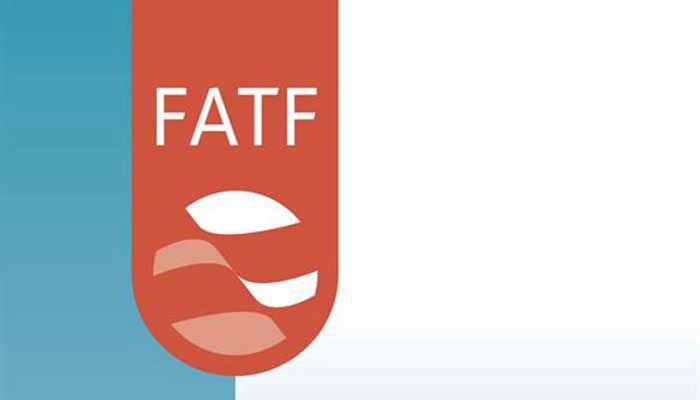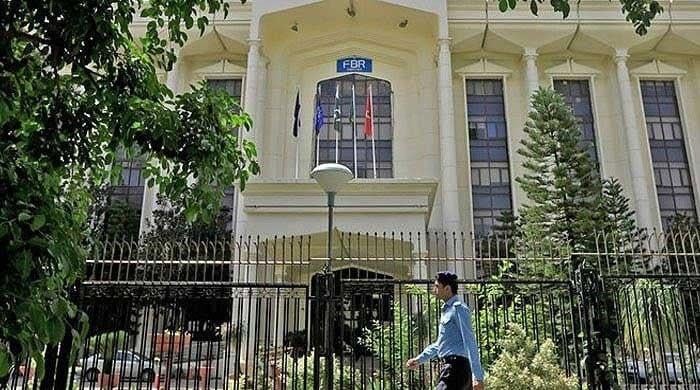FATF asks Pakistan to amend foreign exchange laws within 3 months
Sources say FATF has extended the deadline for Pakistan till next plenary meeting expected to be held in October 2020
June 25, 2020

ISLAMABAD: The government of Pakistan will have to pass amendments into Anti Money Laundering (AML) and Foreign Exchange Regulation laws within the next three months to comply with the conditions set forward by the Financial Action Task Force (FATF).
Official sources confirmed to The News on Wednesday that the financial watchdog has extended deadline for Pakistan till next plenary meeting expected to be held in October 2020.
Sources said that after the tragic demise of DG Financial Monitoring Unit (FMU) Mansoor Hassan Siddiqui a few months back, the post was fallen vacant but now the government-appointed Lubna Farooq Malik, Executive Director SBP, as DG FMU.
The notification of her appointment has been issued but she has not take charge of her new post.
There was a proposal on the eve of the budget-making process for 2020-21 to incorporate some amendments related to Anti Terrorism Act (ATA) and AML as part of the Finance Bill but it was rejected and decided that separate legislation would be pursued to seek approval of Parliament. The government had proposed some changes to nonprofit organisations (NPOs) and trusts related to income tax laws in order to comply with the FATF requirements.
When contacted, the Finance Ministry high-ups said that the FATF extended the deadline for the compliance report until October 2020. The government is working on bringing these changes into different laws and the pending legislation bills would be pursued vigorously.
FATF declares Pakistan fully compliant on 14 points
The FATF had placed Pakistan on the grey list in June 2018 and placed 27 conditions for review for complying in one year, till September 2019. Pakistan was so far given three extensions of three months each, every time to comply with 27-point action plans. Out of the 27-point action plan, the FATF had so far declared Pakistan fully compliant on 14 points and now there is a deadline of September/October 2020 for complying on the remaining 13 points in a bid to ensure exit from the grey list of the watchdog.
According to the list of remaining 13 points of 27 action plan (1) Pakistan will have to demonstrate effectiveness of sanctions including remedial actions to curb terrorist financing in the country; (2) Pakistan will have to ensure improved effectiveness for terror financing of financial institutions with particular to banned outfits; (3) Pakistan will have to take actions against illegal money or value transfer services (MVTS) such as hundi-hawala; (4) Pakistan will have to place sanction regime against cash couriers;
(5) Pakistan will have to ensure logical conclusion from ongoing terror financing investigation of law enforcing agencies (LEAs) against banned outfits and proscribed persons; (6) Pakistani authorities will have to ensure international cooperation based investigations and convictions against banned organisations (list provided to Pakistan) and proscribed persons (list provided to Pakistan); (7) The country will have to place effective domestic cooperation between Financial Monitoring Unit (FMU) and LEAs in investigation of terror financing; (8) Prosecution of banned outfits and proscribed persons (list provided to Pakistan); (9) Demonstrate convictions from court of law of banned outfits and proscribed persons (list provided to Pakistan); (10) Seizure of properties of banned outfits and proscribed persons (list provided to Pakistan);
(11) Conversion of madrassas to schools and health units into official formations (list provided to Pakistan); (12) To cut off funding of banned outfits and proscribed persons; and (13) Pakistan will have to place a permanent mechanism for management of properties and assets owned by the banned outfits and proscribed persons (list provided to Pakistan).
Federal Minister for Industries and Production Hammad Azhar in his budget speech on June 12 stated that in June 2018 Pakistan was placed in the grey list and was required to comply with 27 Actionable Points. Our government has put in unprecedented efforts at all levels to improve its AML/CFT regime to meet the requirements of the FATF Action Plan.
In this regard, he said that he has been entrusted with the responsibility of the National FATF Coordination Committee. A comprehensive process of legislative, technical and operational improvements has been initiated. Significant results have been achieved in the areas of financial sector supervision, investigations, prosecutions and international cooperation,” he said.
“We have progressed significantly on 27 actionable items included in the FATF Action Plan. Within a period of one year, 14 items have been largely addressed and 11 partially addressed whereas, in two areas, concerted efforts are being made for implementation,” Azhar added.
Originally published in The News









